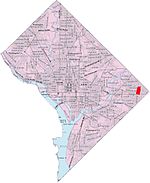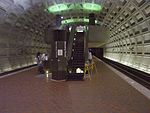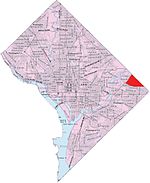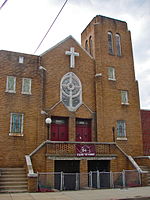Hillbrook (Washington, D.C.)
Neighborhoods in Northeast (Washington, D.C.)Washington, D.C., geography stubs

Hillbrook is a neighborhood in Northeast Washington, D.C. It is bounded by Nannie Helen Burroughs Avenue to the north, Brooks Street to the south, 44th Street NE to the west, and Division Avenue to the east.
Excerpt from the Wikipedia article Hillbrook (Washington, D.C.) (License: CC BY-SA 3.0, Authors, Images).Hillbrook (Washington, D.C.)
49th Street Northeast, Washington
Geographical coordinates (GPS) Address Phone number Website Nearby Places Show on map
Geographical coordinates (GPS)
| Latitude | Longitude |
|---|---|
| N 38.893916666667 ° | E -76.931888888889 ° |
Address
Kelly Miller Middle School
49th Street Northeast 301
20019 Washington
District of Columbia, United States
Open on Google Maps









